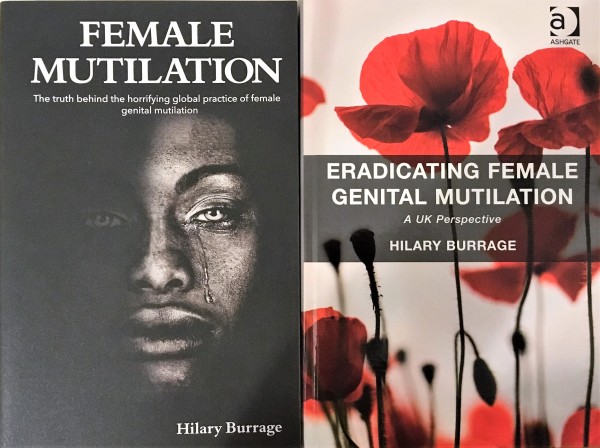
Harmful traditional practices (HTPs) are group-sanctioned but usually now illegal actions taken to reinforce the power of one person or group over (an)other/s. HTPs occur in all societies but are more prevalent in less advantaged communities than elsewhere; and women and girls are more likely to be the victims of HTPs than are boys and men, albeit both experience them in specific contexts. HTPs are historically underpinned by contests for scarce resources and economic control and power. The recent past has seen global moves to address the issues and stop these practices.
Some examples of harmful traditional practices are listed below. Please be aware that this is not pleasant reading.
UPDATE 2019: There is now a move away from the term ‘harmful traditional practices’ to the more widely encompassing simple term ‘harmful practice‘.
Harmful traditional practices (HTPs) have existed, and still exist, in every human society. They comprise actions which are damaging to the individual/s concerned and which arise from group perceptions of who may impose their will on whom. Most HTPs involve physical as well as psychological harm, often long-term as well as immediate. They are often inflicted by sanctioned or appointed agents with the knowledge and consent of the group or community concerned, and may be justified or even approved via claimed religious or magic beliefs. Ultimately, however, HTPs are most often long-established mechanisms to sustain gender inequality and women’s powerlessness and economic disadvantage.
Some HTPs are directed at boys and men, most particularly, non-therapeutic male ‘circumcision’ or genital mutilation, which occurs in many locations around the world – and which some have also identified as a form of social control, as well as being a ‘group marker’. Study of the origins and socio-economic mechanisms (and potential methodologies for cessation) in regard to MGM are a discipline in themselves, see e.g. https://www.genitalautonomy.org/ and Footnote below.
The majority of other HTPs are however directed at girls and women. The most well-known example of this is female genital mutilation (FGM), which, with 200 million victims alive around the world today, is increasingly a focus of global concern. Alongside this run also the global campaigns to eradicate parallel abuses such as child, early and forced marriage (CEFM), and human trafficking.
Other HTPs now coming to light have also evolved as a result of the perceived necessity, in some traditional settings, to ensure girls are ‘pure’ – sometimes via FGM and / or other practices which can be said to represent patriarchy incarnate. The priority is that girls become brides in societies where a failure to be married can result in isolation and even destitution, perhaps death. Similarly, girls are seen only as producers of babies and are not expected to lead independent lives; they therefore do not, in the view of their communities, require formal education. Ultimately, they are expected to provide their parents with a pension via their husbands.
Amongst the organisations which seek to eradicate HTPs are the Inter-African Committee of Harmful Practices (IAC) and, in the UK, Afruca (Africans Unite Against Child Abuse), which also calls out practices relating to magic and so-called witchcraft.
Harmful traditional practices include
- acid attacks
- albino victimisation and sometimes killings (for ‘magic’ body parts)
- beading (the practice of Morans – young warriors – laying claim to underage girls for sexual exploitation by buying beads and other ornaments for the victim; a similar Western practice is ‘grooming’)
- breast ‘ironing’ (to reduce the sexual attractiveness of girls)
- bride kidnapping (called e.g. ‘ala kachuu’ – when a group of young men literally grab a woman one of them wishes to marry, and drive off with her)
- child sexual abuse
- child / early marriage (arranged marriage under the age of legal consent – sexual intercourse in such relations constitutes statutory rape as the girls are not legally competent to agree to such unions) and forced marriage (CEFM), also sometimes as bride kidnapping
- denial of education
- denial of fertiltiy control / family planning / contraception / safe sex
- domestic violence
- dowry-related violence
- ebinyo (teeth-pulling; four times as prevalent in girls as boys)
- emotional and psychological violence
- female genital mutilation (FGM)
- gang or wartime rape
- ‘honour’ stoning or killing
- labia pulling (okukyalira ensiko)
- leblouh or gavage (forced fattening)
- male genital mutilation (non-therapeutic ‘male circumcision’) – can be fatal or very dangerous
- maltreatment of widows and wife/widow inheritance (when the widow is forced to marry eg her late husband’s brother) / widow ‘cleansing’
- physical punishment (including flogging)
- pimping (prostitution)
- polygamy
- purdah (usually in zenana – confined, often dank and sunless dwellings)
- sexual assault
- sexual harassment
- stove burning
- socio-economic violence
- son preference and female feticide
- ‘spirit child’ allegations
- trafficking of women and girls (for sex), and sometimes also boys and men
- twin infant killing and live burial of infants
- virginity ‘tests’
- witchcraft allegations
- woman-to-woman marriage (nyumba mboke), usually for the production of children when the purchaser of the ‘bride’ is unable herself to have babies
See also WHO: Violence against women
~ ~ ~ ~ ~
Read more about Female Genital Mutilation and related issues
~ ~ ~ ~ ~
Books by Hilary Burrage on female genital mutilation

Eradicating Female Genital Mutilation: A UK Perspective (Hilary Burrage, Ashgate / Routledge 2015).
Full contents and reviews HERE.
FEMALE MUTILATION: The truth behind the horrifying global practice of female genital mutilation (Hilary Burrage, New Holland Publishers 2016).
Full contents and reviews HERE.



Reblogged this on UnCut/Voices Press and commented:
We can all appreciate the marriage of economics and psychology in this pioneering explanation.
Thank you, Tobe! It’s ongoing work – sadly, I’m sure as they are identified I shall be adding even more HTPs to this grim list – but I’d agree the fundamentals are becoming clear.
In a world that is not good. Mostly childrens and teenagers especially are used for sex trade and so on. Thanks for this work and message.